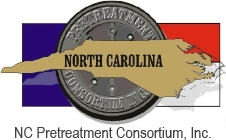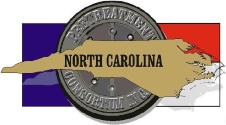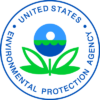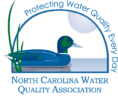Links
Links
NC Department of Environmental Quality - Pretreatment Program
The Federal and State Pretreatment Program gives regulatory authority for EPA, states, and municipal governments to control the discharge of industrial wastewater into municipal Wastewater Treatment Plants (WWTPs) or Publicly Owned Treatment Works (POTWs). The objectives of the Pretreatment Program are to prevent pass-through, interference, or other adverse impacts to the POTW, its workers or the environment; to promote the beneficial reuse of biosolids; and to assure that all categorical pretreatment standards are met. There are approximately 620 Significant Industrial Users (SIUs) who discharge industrial wastewater to more than 130 POTWs throughout the State of North Carolina.
EPA - National Pretreatment Program
The national pretreatment program is a component of the NPDES program. It is a cooperative effort of federal, state, and local environmental regulatory agencies established to protect water quality. Similar to how EPA authorizes the NPDES permit program to state, tribal, and territorial governments to perform permitting, administrative, and enforcement tasks for discharges to surface waters (NPDES program), EPA and authorized NPDES state pretreatment programs approve local municipalities to perform permitting, administrative, and enforcement tasks for discharges into the municipalities’ publicly owned treatment worksHelppublicly owned treatment worksA treatment works (as defined by CWA section 212) that is owned by a state or municipality [as defined by CWA section 502(4)]. This definition includes any devices or systems used in the storage, treatment, recycling, and reclamation of municipal sewage or industrial wastes of a liquid nature. It also includes sewers, pipes, or other conveyances only if they convey wastewater to a POTW treatment plant. The term also means the municipality [as defined in CWA section 502(4)] that has jurisdiction over the indirect discharges to and the discharges from such a treatment works. [40 CFR 403.3(q)] (POTWs).
North Carolina Water Quality Association
The North Carolina Water Quality Association (NCWQA) brings together proactive local governments, wastewater authorities, and leading wastewater engineering firms to protect water resources in North Carolina based on sound science and good public policy. The Association supports clean water, vibrant communities, and a strong state economy by seeking to align clean water goals, smart management practices, and affordable technology and public infrastructure.
NC Rural Water Association
We are a non-profit organization dedicated to helping our members attain the highest standard in drinking water and wastewater service. Serving members statewide, NCRWA is governed by a volunteer Board of Directors from the association’s membership. Members represent both community and non-community water and wastewater systems.
NC One Water
NC One Water is dedicated to providing water and wastewater education, training, and service in an effort to protect public health and the environment. We have over 2,500 members in North Carolina representing municipal and private utilities, consulting engineering firms, government agencies, companies who provide equipment and supplies to the industry, and representatives of academia who teach and conduct research in water and wastewater-related areas.
Water Environment Federation
The Water Environment Federation is a not-for-profit association that provides technical education and training for thousands of water quality professionals who clean water and return it safely to the environment. WEF members have proudly protected public health, served their local communities, and supported clean water worldwide since 1928.
American Water Works Association
The American Water Works Association is an international, nonprofit, scientific and educational society dedicated to providing total water solutions assuring the effective management of water. Founded in 1881, the Association is the largest organization of water supply professionals in the world.







